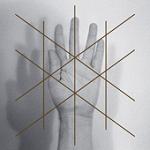|
|
 |
Dusted Reviews
Artist: John Wiese Album: Seven of Wands Label: Pan Review date: Jan. 27, 2012 |

|
|
|
 |
John Wiese doesn’t make music, and he’s certainly not a composer. While he uses sound, he’s not necessarily concerned with arrangement. Instead, Wiese is into problems and limitations, both solving and creating them. With each work, he seems to ask how one can confound expectations and create tense, engaging atmospheres while staying away from clichés and obvious musical gestures.
Wiese doesn’t do synthesis and he (mostly) doesn’t make his own sounds. Instead, he collects and creates samples of small, incidental sound, like radio static, tape manipulations, and live playing — sub-lingual vocals and inner-throat gargles, cymbal crashes, guitar feedback, distorted riffs, snare hits, rim shots (for two pieces, some of these are courtesy of his recent touring mates, Liars). On Seven of Wands what emerges are seven menacing pieces of pointillist outré musique concrete, passages of metallic slow-motion resonance and surreal audio collage.
His source sounds, while recognizable, are hollowed out, made almost inert. There’s no attack and no decay, just sonic bodies hurtled in, out and through the mix, the product of some especially gnarly Max/MSP patches and hyperactive mixing board antics. Aside from shaping the duration and envelope of each sound, Wiese applies little processing. This leaves the pieces chunky, tactile, and three-dimensional, more debris-filled than sculptural.
“Corpse Solo” and “Don’t Move Your Finger,” both sound in parts like a Derek Bailey solo cut up and smothered with a blanket. They are hyper-detailed, with almost zero repetition. But Wiese’s taut arrangements and tight control of the dynamics put the pieces at a low boil. Events move by quickly but you can still catch and process each one. All tension and no release.
This restraint is the key to what Wiese does. It makes him develop the pieces in fresh ways and avoid obvious structural ploys: no peaks and quiet sections, no intros or conclusions. He can stretch out, like on ““Don’t Stop Now You’re Killing Me,” and he can stay concise, like on the opener “The Dark Ages.” Whatever the form, he keeps things precise yet spontaneous. Despite all this severity and the lack of concern with typical musical gestures, Seven of Wands is an engrossing, thrilling experience.
By Matthew Wuethrich
|







